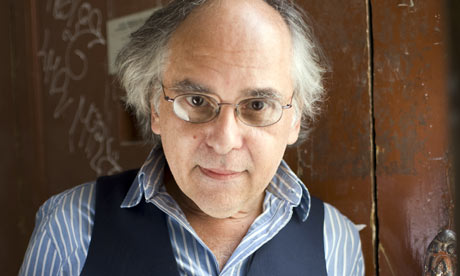Art Spiegelman's graphic novel Maus was hailed as a masterpiece. He's still recovering. As his sketchbooks are published for the first time, he explains all to Angelique Chrisafis
 "When you've been revealed in all your pathetic nakedness, there's nothing else to lose' ... Art Spiegelman.
"When you've been revealed in all your pathetic nakedness, there's nothing else to lose' ... Art Spiegelman. Despite the awful details of his life, Spiegelman's confessional style makes his works almost impossible to put down. His parents were forced into the Polish ghettos in 1941, reluctantly handing their eldest son - Spiegelman's brother - over to relatives to hide him. The little boy was poisoned to death by his aunt during a Nazi raid; she thought it better than letting him go to the camps, and killed herself, too. His grief-stricken parents ended up in Auschwitz, which they survived. Spiegelman was born after the war and raised in New York, an only child with a "ghost brother". His father was brutalized and damaged; his mother took her own life when Spiegelman was 20 and didn't leave a note. All this is laid bare in his work. To him, Maus, published in 1986 and 1992, was, "as a blues musician would say, my crossover hit"; but he sees all his work on a continuum, "made from the same fractured psyche".
Next week, three of Spiegelman's sketchbooks will be published for the first time.
http://www.guardian.co.uk/books/2009/jun/11/art-spiegelman-maus-comic-sketchbooks








No comments:
Post a Comment